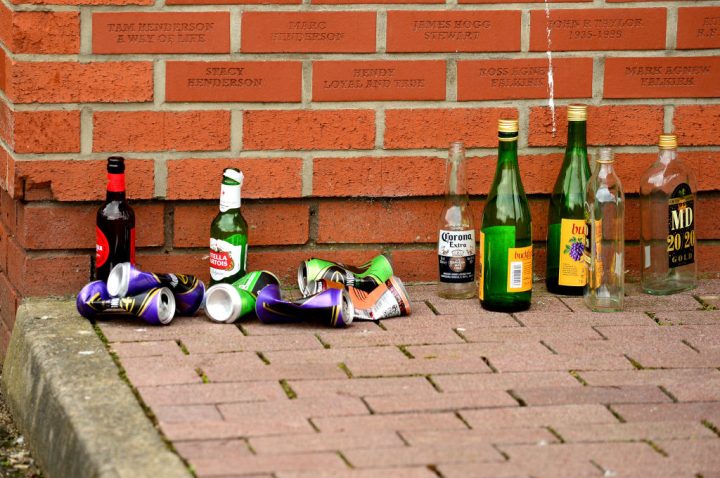As Nicola Sturgeon prepares to exit stage right, she’s been reeling off her greatest hits. Things she thinks she’s done to leave her mark on Scotland. She was helped this week by a study published in the Lancet. It claimed that her minimum unit pricing policy (where alcohol must be sold for at least 50p per unit) has reduced alcohol-related mortality by 156 deaths per year. That’s a reduction of 13 per cent. Impressive. But is the data really so clear cut?
The outgoing First Minister shared a headline about the government funded study which read ‘Minimum pricing averts alcohol deaths’. She was proud:
Looking back on my years in [government] this is one of the policies I’m proudest of. It was controversial and difficult but I’m glad we persevered to overcome all the political and court challenges because, as this study suggests, it is saving lives.
But what she conveniently leaves out is that booze deaths in Scotland are still rising. In fact, last year they grew by some 5 per cent and have generally been on the up since 2012.
Hard to square this then with the study's claim that the policy ‘led to significant reductions in deaths’. How does the study reach its conclusions? The researchers compared Scotland to England (which doesn’t have MUP and deaths are usually half the Scottish rate) to make an estimate for what Scottish deaths would have been had MUP not been introduced. Based on this they were able to say that deaths were 13 per cent lower than expected. This led to quite incredible scenes on BBC News where the presenter stood in front of a graph showing deaths going up but repeated the spin that they’re lower than they otherwise might have been.
And how correct is the premise that English alcohol deaths so perfectly correlate to Scotland that any difference in trajectory can only be explained by policy? The brutal truth is that the two are hardly relatable at all. Scotland’s are far higher and crashed down between 2005 and 2012 while England’s rose without minimum alcohol pricing or anything else. The Lancet study doesn’t mention this.
But for most ordinary Scots a fall in deaths must mean a fall in deaths – not a theoretical reduction against a statistician's counterfactual. So it is quite evident that minimum unit pricing, or any other policy Sturgeon is proud of, has not led to a real fall in deaths caused by alcohol. There are other problems with the study too: It found no statistically significant reduction in hospital admissions for alcohol related causes – surely a precursor to reduced deaths. The same was true for deaths partially due to alcohol such as liver cirrhosis.
Dr Adam Jacobs, a biostatistician said:
I have two problems with [the claim]. First, there may be some uncertainty in attributing which deaths were ‘wholly attributable’ to alcohol consumption, and the paper would be more convincing to me if they presented statistics on all-cause mortality.
Second, figure 1 in the paper appears to show the trend for mortality increasing since the MUP was implemented. There may be reasons why despite this there is statistically a decrease in deaths due to alcohol, but I would find it more convincing if you could see the death rate actually decreasing in the raw data.
Professor Kevin McConway of the Open University went further:
This is an observational study, and no matter how well other factors are controlled for, it can never prove conclusively that the changes observed in deaths were due to the minimum unit pricing policy. In my view there hasn’t been enough caution given around assuming this relationship is causal.
He went on to point out that alcohol deaths do not happen quickly. They tend to come after years of disease. So it is quite possible that any reduction in expected deaths was due to reduced consumption that began a lot longer than five years ago. The study does not convincingly rule that out.
So there is a correlation that perhaps means MUP has made a small dent in Scotland's alcohol deaths. But it certainly doesn’t amount to any sort of concrete proof. Scots know how to read graphs and so for any leader of the Scottish Government to claim they’ve reduced deaths from the bottle, they’ll need to get the real number of deaths – not models or estimates – going down first.
Minimum unit pricing has a sunset clause that means its effect must be proved by the end of April next year. If evidence like this pushes MSPs past the sniff test then one thing is certain: the price of booze will be going up. But whether deaths go down remains to be seen.







Comments